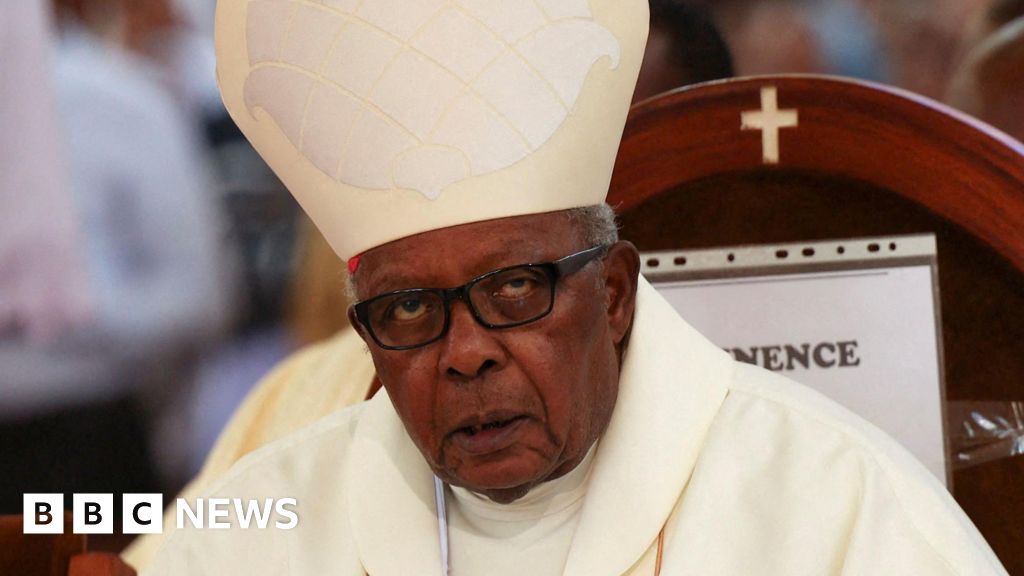In April, President Trump issued an executive order announcing his plan to protect “American energy from state overreach” and directing the Justice Department to block state and local climate initiatives “that threaten American energy dominance and our economic and national security.”
Last week, the contours of that effort became clearer when the department filed lawsuits against four states.
Two of the lawsuits target climate superfund laws passed last year in Vermont and New York, which are designed to force fossil fuel companies to help pay for climate-related costs. Also last week, the Justice Department filed lawsuits against Hawaii and Michigan just days after learning Hawaii was planning to sue fossil fuel companies for climate-related damages, as nine other states have done. Michigan had also indicated was planning to sue.
When the executive order was first issued, many legal experts said it amounted to little more than a signaling exercise because presidents do not have the power to alter state laws. The new legal actions will test the limits of that theory, and also test the willingness of states to pursue their climate plans.
“We had expected the administration to do lots of deregulatory actions,” said Meghan Greenfield, an environmental lawyer who previously worked at the Justice Department and the Environmental Protection Agency and is now a partner at the law firm Jenner & Block. “I don’t think that we expected, also, at the same time, an offensive effort against the states.”
In areas like abortion and education, the Trump administration has supported states’ rights to make their own policies, a traditionally Republican position. The executive order on state climate policies “works in the opposite direction,” Greenfield said. “It’s taking away authorities that states have been exercising,” she said.
In response to a request for comment, the White House pointed to a Department of Justice statement announcing the four lawsuits.
Here are some of the state climate initiatives that may face challenges.
Climate superfund laws
Last year, Vermont became the first state in the nation to pass a Climate Superfund law, modeled after the longstanding federal Superfund program to clean up toxic pollution. New York followed soon after, and a handful of other states have considered similar bills.
The details of the states’ plans differ, but the basic idea is the same: They plan to rely on the emerging field of attribution science, which links greenhouse gas emissions to natural disasters, to hold oil and gas companies financially responsible for climate-related damage.
The laws have been roundly criticized by Republicans and fossil fuel interests, who argue that it’s unfair to ask companies to pay for past emissions that did not break any laws. Before the Justice Department’s action, Vermont had already been sued by the Chamber of Commerce. Two dozen state attorneys general who oppose the law have asked to join the chamber’s suit.
Climate change lawsuits
Since 2017, roughly three dozen state and local governments have sued energy companies over their role in climate change. Many of the lawsuits argue that the companies concealed what they knew about climate change’s risks for decades.
Similar to the climate superfund laws, these lawsuits seek to force energy companies to pay for climate-related damages. Some advocates see the overarching strategy as something similar to the 1998 “Big Tobacco” settlement with 46 state attorneys general, in which tobacco companies agreed to a raft of changes and paid billions of dollars in damages over the health effects of smoking.
But the Justice Department’s actions may throw a wrench in some of those plans. Last week, Puerto Rico dropped a $1 billion lawsuit against fossil fuel companies over claims they hid the harm of climate change. The governor’s office did not immediately explain why it had dropped the suit.
Oil companies argue that the states’ lawsuits should be thrown out because federal law governs energy policy and emissions, not state or local law. Theodore J. Boutrous Jr. of Gibson, Dunn & Crutcher, counsel for Chevron Corporation, said the move by Puerto Rico “adds to the growing momentum among federal and state courts holding that states and municipalities cannot use state laws to sue over climate change.”
There are still two related suits pending in Puerto Rico, including one filed in federal court over claims of racketeering violations.
Cap and trade
Greenfield said that it’s “just a matter of time” before the Department of Justice sues to block states’ efforts to cap emissions. Likely targets, she said, are California’s cap-and-trade law and a longstanding agreement among several Northeastern states to limit emissions from power plants.
Cap-and-trade or cap-and-invest laws are designed to reduce greenhouse gas emissions over time by effectively putting a price on pollution. Companies are required to buy obtain permits, often at auction, that function as emissions allowances. Fewer permits are offered each year, in theory reducing emissions across the covered market over time. Washington has also passed a cap-and-invest law.
April’s executive order explicitly referenced “California’s radical requirements” and instructed the attorney general to identify and prioritize any state and local policies that involve “carbon penalties or carbon taxes.”
What’s next?
It’s not yet clear which other state and local policies the Department of Justice might try to block under the executive order. Its legal strategy could range from a handful of targeted actions to a wide-ranging “flood the zone” approach, Greenfield said.
It’s nothing new to see a new administration coming into conflict with state policies it doesn’t agree with. During his first term, Trump tried and failed to prevent California from linking its carbon market to Québec’s.
Still, the filings in Michigan and Hawaii show “a level of aggression we haven’t seen in this space before,” Greenfield said.
Solar
India sees a future making solar panels for itself, and maybe the world
China, the world’s clean-energy juggernaut, faces a rival right next door. And one of its top customers, no less.
India, a big buyer of Chinese solar panels and electric vehicle batteries, is using a raft of government incentives to make more green gear at home. It is driven not just by the need to satisfy the galloping energy demands of its 1.4 billion people, but also to cash in on other countries that want to China-proof their energy supply chains, not least the United States.
Hoping to spur a clean energy manufacturing boom, the government is offering lucrative subsidies for locally produced solar cells and batteries, and it is restricting foreign products in its biggest renewable-energy projects. To cash in on government contracts to install rooftop solar for 27 million households by the end of this decade, for instance, companies must make the panels at home. — Somini Sengupta
Read more.
Ask NYT Climate
What kind of seafood should I eat?
Fish and seafood can be more environmentally friendly to eat than other animal foods like beef, pork, and chicken. But you need to choose carefully.
Not all fish are sustainable. And it’s more complicated than opting for certain species over others, because the sustainability and nutritional value of fish is affected by a host of factors.
So, we asked the experts to school us in seafood. Here’s what they had to say. — Sofia Quaglia
Read more.
Lost Science
Has your scientific research been canceled?
Help us with our reporting. We’re looking to interview scientists doing work that has been halted due to federal funding cuts.
If you’re a fired government employee or a university researcher who has had a federal grant canceled, or if you’ve have had to shut down climate-related research as a result of the administration’s recent changes, we want to talk to you.
Please write to [email protected] or respond to this email, and tell us what you were working on, the current status of your job or grant, and whether you’re willing to talk on the record. You can also visit our tips page for encrypted communication.
Source link

















